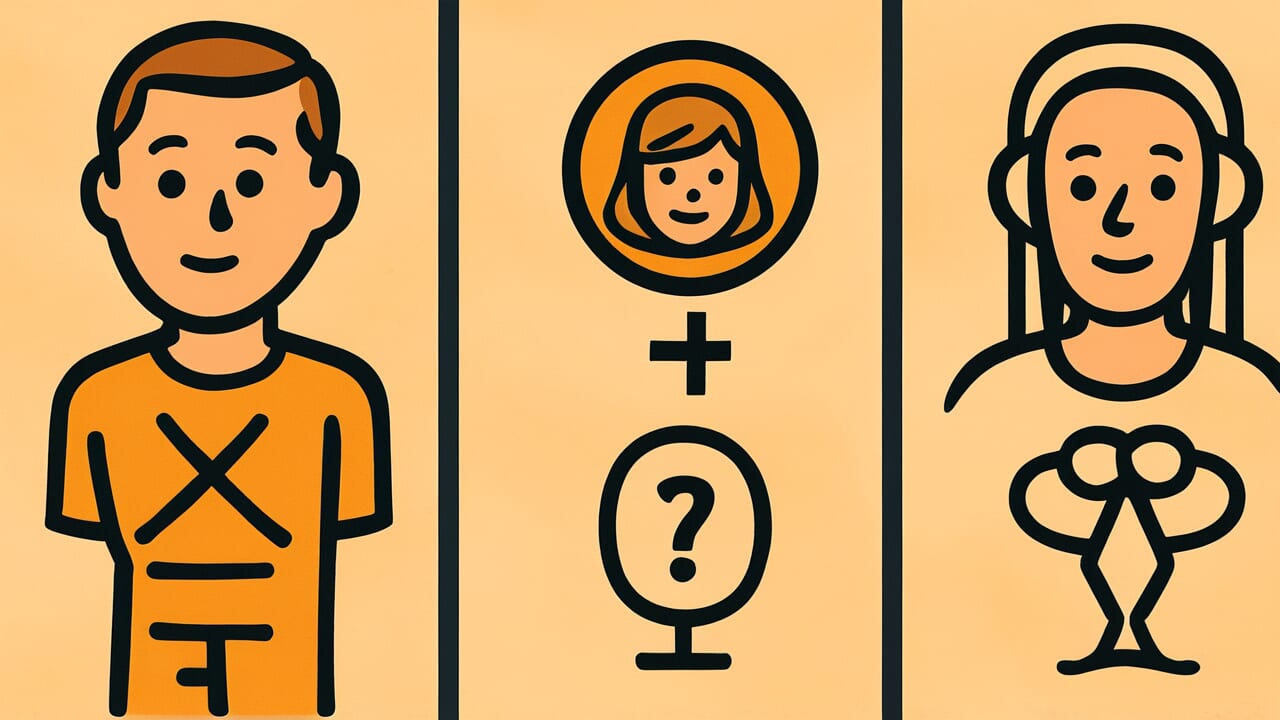How to Read “Others have seven quirks, I have eight”
Hito ni nana kuse waga mi ni ya kuse
Meaning of “Others have seven quirks, I have eight”
This proverb means that other people’s flaws and quirks are easy to notice. But in reality, you have even more flaws and quirks yourself.
People can observe others objectively. That’s why we quickly notice small quirks and problems in how others behave. But when it comes to ourselves, we become blind to our own habits because they feel so normal.
This proverb serves as a warning. It tells us to reflect on ourselves before criticizing or pointing out others’ faults.
When you think “that person has so many quirks,” you must remember that you actually have even more. This is the teaching behind the words.
Even today, this wisdom applies. When you criticize someone on social media or notice a coworker’s flaws at work, remembering these words helps you regain humility.
It warns against blaming others while ignoring your own faults. This is wisdom for maintaining smooth relationships with people.
Origin and Etymology
No clear written records explain the origin of this proverb. However, we can make interesting observations from how the phrase is constructed.
The word “kuse” (quirk) originally refers to habitual actions or speech patterns that we repeat unconsciously.
The numbers “seven” and “eight” don’t indicate actual counts. They’re metaphorical expressions meaning “many.” Japanese has long used the combination of seven and eight to mean “a lot.”
Examples include “nana korobi ya oki” (fall seven times, rise eight) and “nana nan hakku” (seven hardships and eight sufferings).
This proverb likely emerged from deep insights into human observation. Other people’s quirks and flaws are easy to notice because we see them objectively.
But our own quirks are hard to recognize. We perform them unconsciously, which is exactly what makes them “quirks.” This is a fundamental human characteristic.
The contrasting structure of “others have seven quirks” and “I have eight quirks” is meaningful. By saying you have one more than others, it emphasizes self-reflection.
This phrase reflects Japanese cultural values that emphasize humility. You should examine yourself before criticizing others.
The most widely accepted theory suggests it spread among common people during the Edo period.
Usage Examples
- I was about to point out her speaking quirks, but “Others have seven quirks, I have eight,” so I’ll keep quiet
- I keep noticing my subordinate’s mistakes, but “Others have seven quirks, I have eight,” so I should review my own work first
Universal Wisdom
This proverb reveals a fundamental human truth. It shows the difficulty of self-awareness and our double standard of being harsh on others while lenient on ourselves.
Why do people notice only others’ flaws? Because when we observe others, we can maintain an objective viewpoint. But with ourselves, we’re always looking from the inside. Our quirks and flaws become part of the normal landscape.
There’s an even deeper truth here. People unconsciously search for others’ flaws to avoid facing their own. In psychological terms, this is a type of defense mechanism.
Acknowledging our own imperfections causes pain. So we criticize others to make ourselves look relatively better.
This proverb has been passed down for hundreds of years. That’s because this human tendency never changes across time. Ancient people and modern people share the same pattern of being harsh on others and lenient on themselves.
That’s why our ancestors left us these words. They wanted to teach us the importance of self-reflection.
Humans are not perfect. Everyone has flaws. But those who can acknowledge this fact and humbly examine themselves are the ones who can truly grow.
When AI Hears This
Our attention system operates in completely different modes when looking outward versus inward. When observing others, we function like a camera capturing the whole picture from outside.
That’s why we clearly see “output behavior patterns” like hand movements when someone talks, their eye contact habits, and verbal tics.
But when recognizing ourselves, the brain accesses the “execution process” of actions. We can be aware of intentions like “I’m going to speak” or “I’m going to move my hand.”
However, we can’t see what pattern these intentions create from an outside perspective. It doesn’t enter our field of vision.
Cognitive science shows that people experience an “illusion of transparency.” They mistakenly believe their inner state is visible to others. You think everyone can tell you’re nervous.
But the reality is the opposite. Your own behavior patterns are invisible to you. Research shows that self-assessment and others’ assessment match only about 30 percent of the time.
What’s more interesting is the discomfort when seeing yourself on video. Just as you’re surprised hearing your recorded voice, your quirks seen from an external viewpoint can’t be predicted from internal processes.
This happens because consciousness is fixed in first-person perspective. It’s a structural blind spot. This is the very cognitive mechanism that creates the difference between “seven quirks and eight quirks.”
Lessons for Today
This proverb teaches modern people the courage to pause before criticizing. When you want to argue with someone’s post on social media, when you feel frustrated with a coworker’s performance, when family behavior irritates you.
These are exactly the moments to remember these words.
In modern society, pointing out others’ flaws has become easy. Some environments even allow anonymous criticism. But that’s precisely why we need the humility to reflect on ourselves.
The quirks and flaws that bother you in others might be ones you have too. Or you might have just as many flaws in different forms.
This realization dramatically improves relationships. It creates tolerance toward others and strictness toward yourself. By accepting that no one is perfect, you can build relationships where people acknowledge each other’s imperfections.
What’s important is not using this proverb as a weapon to silence others. This is a question you ask yourself.
Starting today, when you want to criticize someone, why not examine yourself first?



Comments